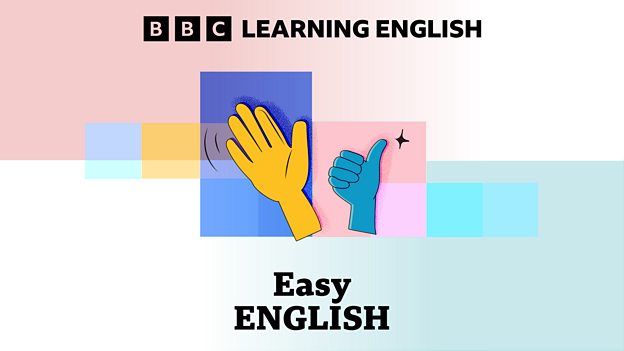6 Minute English
Intermediate level
Learning a new food culture
Episode 240926 / 26 Sep 2024

_____________________________________________________________________________________________________
Download a free 6 Minute English worksheet!
Download a free transcript!
______________________________________________________________________________________________________
Learn more about food
______________________________________________________________________________________________________
Try more episodes of 6 Minute English:
______________________________________________________________________________________________________
Introduction
If you moved to a different country, how would you cope with new kinds of food? Neil and Beth discuss this and teach you some useful vocabulary.
This week's question
Cream teas are a traditional British summer snack featuring scones, cream and jam. But what argument is there around cream teas?
Is it:
a) whether to drink tea or coffee?
b) whether to put cream or jam onto the scone first? or,
c) whether strawberry or raspberry jam is better?
Listen to the programme to hear the answer.
Vocabulary
comfort zone
situation in which a person feels secure, comfortable, or in control
adapt
change to successfully deal with a new situation
staple
basic and important type of food that is regularly eaten by a large portion of the population
be in for a shock
be guaranteed to experience a surprising or unpleasant situation
tweak
small adjustment to something in order to improve it
trial and error
way of solving a problem by trying a number of different methods and learning from the mistakes you make
TRANSCRIPT
Note: This is not a word-for-word transcript.
Neil
Hello. This is 6 Minute English from BBC Learning English. I'm Neil.
Beth
And I'm Beth.
Neil
Every country has its own favourite foods. So, when people leave home and move to a different country, getting used to the new food there can be a surprise.
Beth
Food can have strange-sounding names. If you know what a toad is, it's an animal, very similar to a frog, you might be surprised to hear that a famous English meal is 'toad-in-the-hole'. Don't worry though, it's made with sausages, not toads!
Neil
In this programme, we're exploring people's first impressions of a new culture through its food. We'll be hearing how two women, one a refugee, the other a dietitian, adapted to the food of their new home. And, as usual, we'll be learning some useful new vocabulary too.
Beth
But first, I have a question for you, Neil. A British summer wouldn't be complete without a traditional 'cream tea' – scones, cream, and jam, eaten with a cup of tea. It sounds lovely, but strangely there have been many arguments over cream teas. So, is the cream tea debate about:
a) whether to drink tea or coffee?
b) whether to put cream or jam onto the scone first? or,
c) whether strawberry or raspberry jam is better?
Neil
Well, I think the controversy is whether to add cream or jam first.
Beth
OK, Neil. I'll reveal the correct answer later in the programme. Natalia Tkachenko arrived in the Netherlands after leaving her home in Ukraine, following the Russian invasion. She moved in with Weronika Groszewska, who's originally from Poland, and her family, starting them on a journey to open their own restaurant, Natalia's Kitchen. Here's Natalia talking with BBC World Service programme, 'The Food Chain':
Natalia Tkachenko
Of course, at first it felt like I am well out of, what they call, my comfort zone. When you stay in a certain environment you get used to it, but when you move to another country where you live and work, you experience difficulties, and you have to adapt to get used to local foods. Here, they don't have some of the staples we had in Ukraine, ingredients are different, and so you start working with local foods, find replacements, cook with what you have.
Neil
At first, Natalia felt out of her comfort zone, a familiar situation in which someone feels secure and in control. She had to adapt to her new life in the Netherlands, she had to change in order to succeed in her new situation.
Beth
Some of the staple ingredients Natalia used in Ukraine weren't available in the Netherlands. A staple is a basic and important type of food that is regularly eaten by a large portion of the population. So, Natalia adapted her recipes, replacing Ukrainian with Dutch ingredients to create a new kind of cooking which her customers loved.
Neil
Our second story involves Rachel Winter-Roach, who left her home in England to work on the sunny island of Tobago, in the southern Caribbean. Here, Rachel explains some of the food challenges she faced to BBC World Service programme, 'The Food Chain':
Rachel Winter-Roach
When I came out to the Caribbean, I was really in for a shock when it came to flavouring and seasoning food, and seasoning is really, really an integral part of food preparation here.
[…]
Here, the seasoning is multiple, multiple layers. It took me a while to get used to it because everybody has their own way of seasoning and their own little tweaks, and there are no quantities, so it really takes a lot of practice, a lot of trial and error, and I think my family did not always appreciate the errors in the trials.
Beth
When Rachel moved to Tobago, she was in for a shock. The phrase to be in for a shock means to be sure of experiencing a surprising or unpleasant situation. In Rachel's case, the surprise involved seasoning - the salt, herbs and spices added to food to enhance the flavour.
Neil
In the Caribbean, seasoning is a big deal. Everyone has their own seasoning recipe, including little tweaks, or small adjustments, which they have added themselves. It took time for Rachel to develop her seasoning skills, mainly through trial and error - a way of solving problems by trying a number of different methods and learning from the mistakes you make along the way.
Beth
Whether you're fleeing war, starting a new job, or enjoying a cream tea, it seems there's lots to learn about a place from its food, including Britain. So, I think it's time to reveal the answer to my question, Neil. Why is the traditional British cream tea controversial?
Neil
Well, I guessed it was because people disagree about whether cream or jam should go on the scone first.
Beth
Which was the correct answer. And anyone who says it's jam first is just wrong! OK, let's recap the vocabulary we've learned in this programme, starting with comfort zone, a situation in which you feel comfortable and in control.
Neil
To adapt means to change so as to successfully fit in with a new situation.
Beth
A staple is a basic and important type of food that is regularly eaten by a large portion of the population.
Neil
The phrase to be in for a shock means to be guaranteed to experience a surprising or unpleasant situation.
Beth
A tweak is a small adjustment to something in order to improve it.
Neil
And finally, if you solve a problem by trial and error, you try a number of different methods and learn from the mistakes you make. Once again, our six minutes are up, and remember to join us again, here at 6 Minute English. Goodbye for now!
Beth
Bye!
Latest 6 Minute English

Embarrassed to go to the doctor?
Episode 241226 / 26 Dec 2024
Have you ever been embarrassed to go to the doctor?

Call centres: Are you talking to AI?
Episode 241219 / 19 Dec 2024
Have you ever phoned up a company and had your call held in a queue? Could AI make this less painful?

Making 'mum friends'
Episode 241212 / 12 Dec 2024
Is making new ‘mum friends’ the positive experience it’s often described as?

Can you trust ancestry DNA kits?
Episode 241205 / 05 Dec 2024
Are DNA ancestry tests a reliable way to trace your ancestry?

How babies learn to talk
Episode 241128 / 28 Nov 2024
What do babies need to learn to do to be able to talk?


The bond between sisters
Episode 241114 / 14 Nov 2024
Are the stereotypes about older and younger sisters true?


Why you need a good night's sleep
Episode 241031 / 31 Oct 2024
Why is it so important to get a good night's sleep?

Divorce: Why does it happen?
Episode 241024 / 24 Oct 2024
How is divorce talked about in different countries?


Did Taylor Swift fans cause an earthquake?
Episode 241010 / 10 Oct 2024
Did Taylor Swift move the Earth?


Learning a new food culture
Episode 240926 / 26 Sep 2024
Would you find it different to adapt to a new food culture?

Saving water in the driest place on Earth
Episode 240919 / 19 Sep 2024
How do farmers in the driest place on Earth manage to grow crops? With this solution!



Chocolate: Meet a real Willy Wonka
Episode 240829 / 29 Aug 2024
Would you like to be a chocolate maker, like Roald Dahl's Willy Wonka?

Why we love dumplings
Episode 240822 / 22 Aug 2024
Warning! This episode might make you very hungry...

Kids and climate change
Episode 240815 / 15 Aug 2024
What are young people's thoughts on climate change?


The science of falling in love
Episode 240801 / 01 Aug 2024
What's really happening in our brain when we fall in love?

AI to reduce animal testing
Episode 240718 / 18 Jul 2024
Could AI reduce the need for animal testing?

Why read books, not screens?
Episode 240718 / 25 Jul 2024
Why is it better to read from a book than a screen?

The school that puts the kids in charge
Episode 240711 / 11 Jul 2024
What happens when you put the kids in charge of the school?

What can we learn from toddlers?
Episode 240704 / 04 Jul 2024
Learn to speak to yourself in the way that toddlers do!

How learning to read changes lives
Episode 240627 / 27 Jun 2024
How can literacy change people's lives?

Building a better world with wood?
Episode 240620 / 20 Jun 2024
How can buildings made from wood help our mental health?

How names can tell painful stories
Episode 240613 / 13 Jun 2024
Could our name have painful baggage?

E-rickshaws driving away pollution
Episode 240606 / 06 Jun 2024
Could E-rickshaws give us cleaner air?




Bitter food, better health?
Episode 240509 / 09 May 2024
Could bitter foods be better for your health?







Disability in music and theatre
Episode 240321 / 21 Mar 2024
Learn about the people who are making it easier for disabled musicians and music fans to perform and see live music


Sewing to fight period poverty
Episode 240307 / 07 Mar 2024
Period poverty affects over 500 million people worldwide. How can a volunteer project help?

Plastic waste eaten by enzymes
Episode 240229 / 29 Feb 2024
Plastics can be difficult to recycle. Could a recently discovered enzyme help?

Feed your brain
Episode 240222 / 22 Feb 2024
Food is fuel for our brains. So, what should we be eating?

Food for new mums
Episode 240215 / 15 Feb 2024
Having a baby is exhausting! What do mothers need to eat after giving birth?

Fighting loneliness with soup
Episode 240208 / 08 Feb 2024
Hear how a project in the Netherlands is helping in the fight against loneliness


How the language of menus matters
Episode 240125 / 25 Jan 2024
Why is the language used on menus important?










